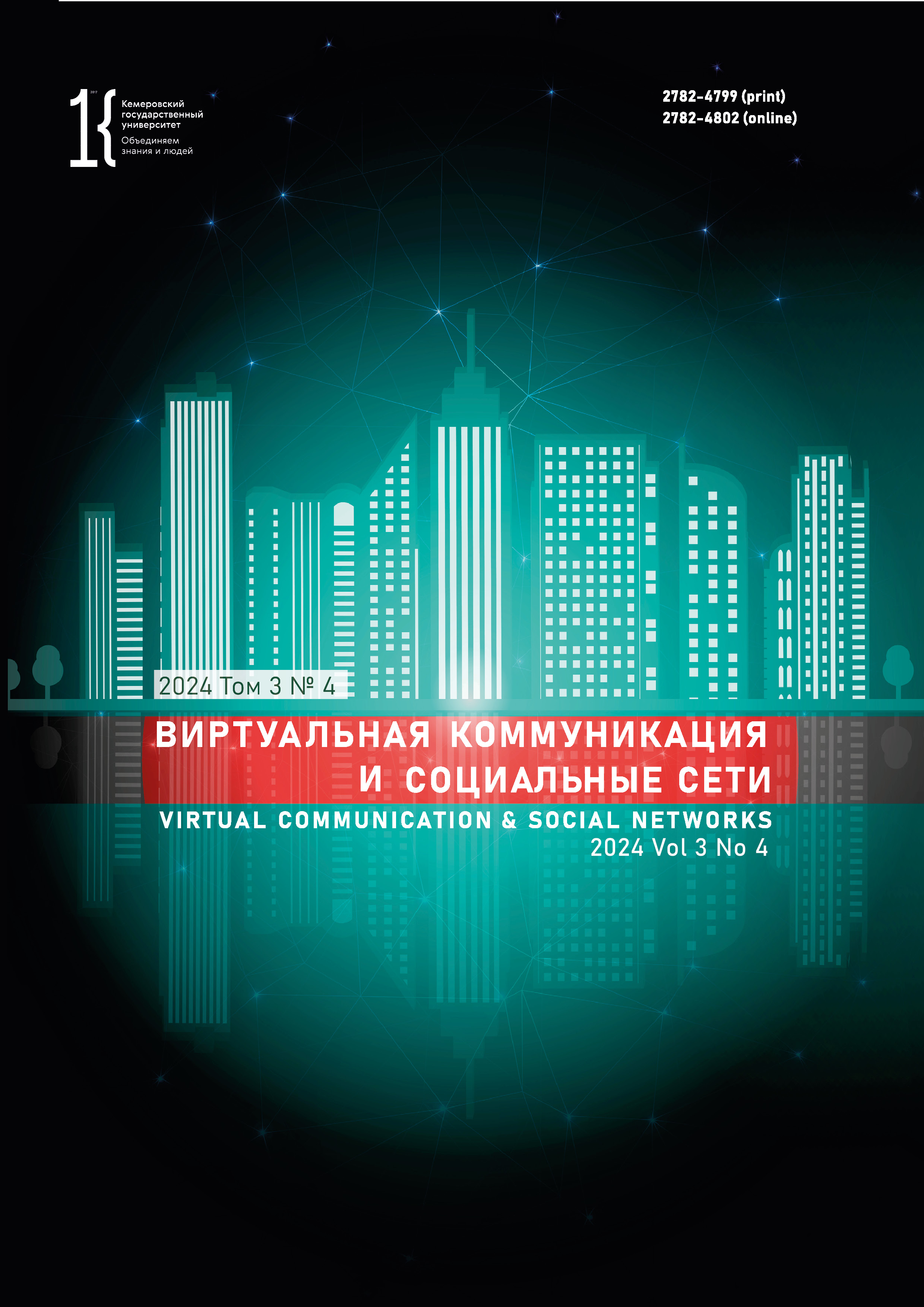Perm, Russian Federation
China University of Petroleum, China
Perm, Russian Federation
VAK Russia 5.9.8
The authors appealed to the principles of eco-translatology, translation ecology, and eco-cognitive translation to analyze the current eco-cognitive translation paradigm across Russian, Chinese, and English studies. The review covered research articles published in Russian, Chinese, and English and registered in the databases of China National Knowledge Infrastructure, Russian Scientific Electronic Library (eLibrary), and Scopus. The data underwent a digital scientometric analysis using VOSviewer 1.6.20. Chinese publications currently outnumber Russian and English-language articles. However, the review revealed some research prospects in the eco-cognitive translation paradigm in China, Russia, and internationally. The digital software proved to be an important tool of scientific review that contributes to a deeper understanding of the current state and trends in translation ecology and eco-translatology.
eco-cognitive paradigm of translation, scientometric analysis, digital databases, data visualization, VOSviewer, translation ecology, eco-translatology
1. Gu J., Song J. Eco-translatology: A new paradigm for translation studies in China. Lomonosov Translation Studies Journal, 2022, 15(2): 7–25. (In Russ.) https://elibrary.ru/blgfuf
2. Kushnina L. V., Plyusnina E. M. Ecology of translation: Prerequisites for the origin and ways of development. Perm: PSU, 2016, 156. (In Russ.)
3. Kushnina L. V., Pylaeva E. M. Ecology of translation: Contemporary trends and approaches. Vestnik Permskogo universiteta. Rossiiskaia i zarubezhnaia filologiia, 2014, (2): 70–76. (In Russ.) https://elibrary.ru/sftkmp
4. Kushnina L. V., Yuzmanov P. R. Ecology of translation: Culture vs nature. Ecology of language at the crossroads of sciences: Proc. Intern. Sci. Conf., Tyumen, 11–13 Nov 2010. Tyumen: UTMN, 2011, pt. 1, 41–45. (In Russ.)
5. Nizomutdinov B. A., Tropnikov A. S. Automated data collection for scientometric analysis. Scientific service on the Internet: Proc. XXI All-Russian Sci. Conf., Novorossiysk, 23–28 Sep 2019. Moscow: KIAM, 2019, 523–531. (In Russ.) https://doi.org/10.20948/abrau-2019-76
6. Panin S. B. Modern scientometric systems "WoS" and "Scopus": Publishing problems and new guidelines for Russian university science. Humanities researches of the Central Russia, 2019, (3): 51–65. (In Russ.) https://elibrary.ru/nttaoy
7. Pylaeva E. M. On synergetic approach under studying the ecology of translation. Philology. Theory & Practice, 2014, (5-2): 173–177. (In Russ.) https://elibrary.ru/samwdt
8. Pylaeva E. M. Eco-concepts as markers of interpersonal interaction. Ecology of language at the crossroads of sciences: Proc. 3 Intern. Sci. Conf., Tyumen: UTMN, 2013, pt. 2, 179–184. (In Russ.)
9. Xin Na. Translation studies in China (2001–2020) through VOSviewer. Lomonosov Linguistics and Intercultural Communication Journal, 2023, (2): 159–176. (In Russ.) https://doi.org/10.55959/MSU-2074-1588-19-2023-2-01-13
10. Fedorov A. A. Bibliometric analysis of publications on post-nonclassical psychology in RSCI. Voprosy psikhologii, 2019, (4): 135–145. (In Russ.) https://elibrary.ru/sbqnol
11. Chistova Ye. V. An eco-friendly model of cognitive management in digital translation studies. Vestnik Moskovskogo universiteta. Seriya 22. Teoriya perevoda, 2021, (3): 46–59. (In Russ.) https://elibrary.ru/mtiblg
12. De Jong R., Bus D. VOSviewer: Putting research into context. Research Software Community Leiden, 2023. https://doi.org/10.21428/a1847950.acdc99d6
13. Hu G. Eco-translatology, towards an eco-paradigm of translation studies. Singapore: Springer, 2020, 312. https://doi.org/10.1007/978-981-15-2260-4
14. Kushnina L. Tournant synergétique dans la traductologie d’aujourd’hui. Cognitivisme et Translatologie. Approches sémantiques et psychologiques, reds. Achard-Bayle G., Durieux Ch. Paris: Classiques Garnier, 2020, 137–152.
15. Orduña-Malea E., Costas R. Link-based approach to study scientific software usage: The case of VOSviewer. Scientometrics, 2021, 126: 8153–8186. https://doi.org/10.1007/s11192-021-04082-y
16. Qin Z., Cui X., Gao X. The characteristics of contemporary Chinese translation theory development: A systematic review of studies in core Chinese journals (2012–2022). Humanities and Social Sciences Communications, 2023, 10(596). https://doi.org/10.1057/s41599-023-01955-w
17. Tomaszewski R. Visibility, impact, and applications of bibliometric software tools through citation analysis. Scientometrics, 2023, 128: 4007–4028. https://doi.org/10.1007/s11192-023-04725-2
18. Xiong X., Qin H., Liu X. The evolution and development of ecotranslatology studies based on the analysis of CiteSpace mapping knowledge domains. Humanities and Social Sciences Communications, 2023, 10(712). https://doi.org/10.1057/s41599-023-02104-z
19. Hu Gengsen. From "translator-centredness" to "translator’s responsibility". Chinese Translators Journal, 2014, 35(1): 29–35. (In Chin.)
20. Hu Gengsen. Ecological translation studies: Construction and interpretation. Beijing: Commercial Press, 2013, 512. (In Chin.)
21. Lu Lu. A review of ecological translation studies in China from 2013 to 2022. Today and Ancient Times, 2023, (35): 107–109. (In Chin.)
22. Wang Kunpeng. Investigation and analysis of the distribution of full-text access to CSSCI source journals on the Internet and its implications. Journal of the Sichuan Library, 2023, (3): 17–22. (In Chin.)


















